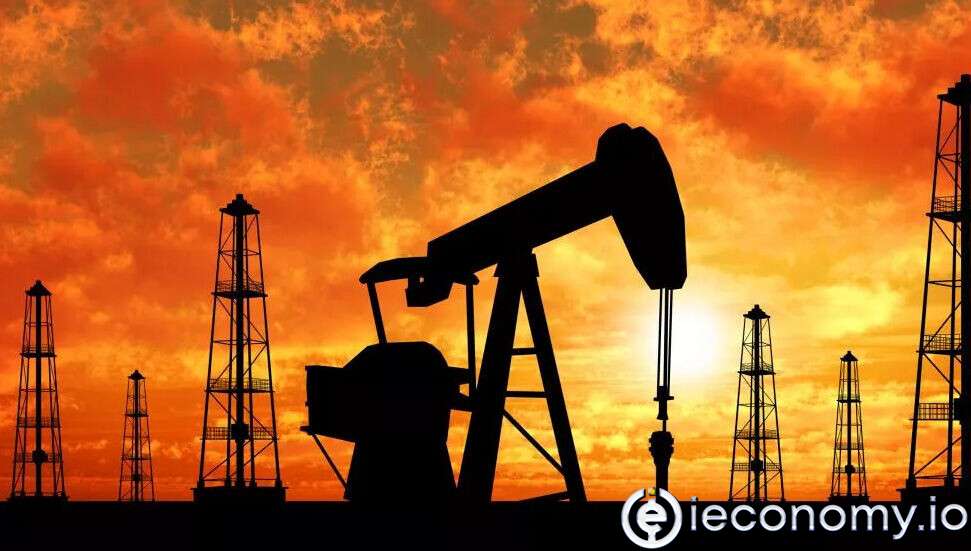Russia's attack may force the OPEC+ group to increase production
While oil prices exceeded $100 per barrel for the first time since 2014, amid growing concerns that the supply might be interrupted after...

Yayınlanma: 27 Şubat 2022 04:49
Güncellenme: 2 Mart 2026 16:25
The OPEC+ group will meet on March 2 to evaluate the latest developments in the market and to determine the amount of production to be applied as of April.
The OPEC+ group, which cut approximately 10 million barrels of daily crude oil production in April 2020 due to the decrease in demand due to the Covid-19 outbreak, started to ease the said production cuts periodically since April 2021, as demand started to recover.
Despite the fact that supply lags behind demand, leading to a rise in oil prices, and some countries led by the USA called for further increase in production, the group continues its plan of gradual production increase of 400 thousand barrels per month in its daily production since August.
According to International Energy Agency data, the group's production capacity is currently around 900 thousand barrels below its monthly target.
The spare generation capacity that member countries can make available in case of any supply interruption has been on a downward trend since 2020.
The total reserve capacity of the OPEC+ group is 5.1 million barrels per day, but only 2.2 million barrels of physical crude oil are available in Saudi Arabia and the United Arab Emirates (UAE) in an emergency.
The group's failure to realize the planned monthly production increase causes sharp declines in global oil stocks, further contraction of markets and a supply gap.
A possible OPEC+ group production increase will be provided by Saudi Arabia and the UAE
Carole Nakhle, Chief Executive of UK-based Consulting Company Crystol Energy, noted that if the tension in Ukraine increases, the OPEC+ group may increase production at its meeting to be held next week.
Nakhle said, "If the OPEC+ group truly believes that what is happening now in Ukraine and Russia is threatening market stability and that this will put a huge strain on the global economy, potentially leading to subsequent demand destruction, it could put more than 400,000 bpd on the market. I don't see any obstacle for other Gulf countries and Saudi Arabia, which have especially serious spare capacity, not to do this because they have taken similar measures for market stability before."
Reminding that most member countries are already experiencing production difficulties, Nakhle said, "The supply increase in question will probably come from Saudi Arabia and the UAE."
In evaluating the possible impact of the OPEC+ group, of which Russia is also a member, on the decision to come out of the meeting, Nahkle reminded that the group also differed in the March 2020 meeting, and said, "If the OPEC group believes that market stability is under threat, even within the OPEC+ framework, as the Saudis have done before, there will be additional barrels in the market. It depends a bit on the market trend and the group's perceptions of ongoing events and the market."
Nakhle pointed out that oil prices decreased a little after it was understood that the sanctions against Russia would not cause disruptions in energy supply and continued as follows:
"But it's not over yet. We still don't know how Russia will react at some point. But we do know that after the annexation of Crimea in 2014, Russia did not cut off its supply in retaliation despite the sanctions. So, there are uncertainties at the moment, but OPEC+'s market response is uncertain. We should not completely ignore the option of going the extra production route to calm down."
If production remains at the current level, record increases in prices may occur
Matt Stanley, Director of Commodities Investment Advisory at Starfuels, said all markets, especially energy markets, are focused on what's next in the attack.
Stanley said that after Russia's attack on Ukraine, it is not expected that there will be an energy-related sanction among the sanctions taken by Western countries against Moscow, but that the concerns in the market will continue.
"Let's not forget that Russia is the world's second largest oil producer and supplies 30–40 percent of Europe's natural gas needs. It is clear that any sanctions on energy production will cause a huge increase in prices. An increase of around $5 per barrel seems to be possible."
Noting that the discussions about the OPEC+ group's stance at this point have started, Stanley said, "Perhaps those who can increase production will have to do this because if the current situation continues, oil prices are in danger of really hitting record levels."
Ehsan Ul-Haq, Petroleum Market Research Analyst, a London Stock Exchange Group (LSEG) affiliate and financial markets data provider company, reminded us that there is a lot of pressure on the OPEC+ group to increase production and said, "The group may take a decision in this direction at its meeting next week."
Ul-Haq stated that Saudi Arabia generally tends to increase its production when there is a crisis that will cause problems on the supply side and said that in the event of an interruption or disruption in Russia's oil supply, Saudi Arabia or some Middle Eastern producers will intervene and force production to increase.




